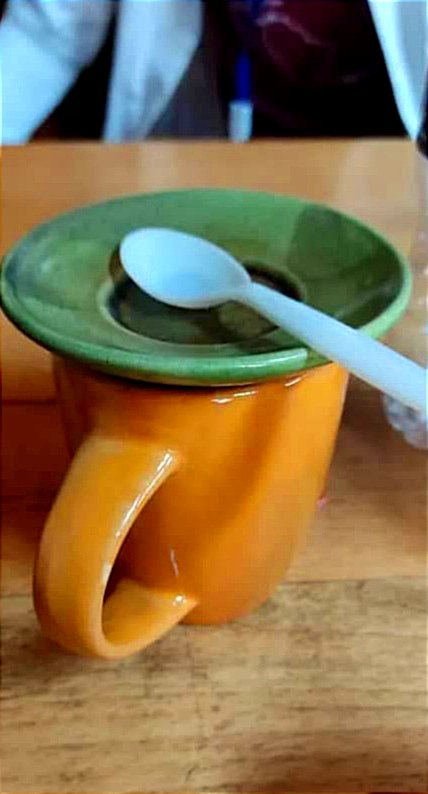A cultural issue - TCSP week 135 / Un asunto cultural - TCSP semana 135 (eng-esp)
Hello, coffee lovers around the world!
The answer to this week's TCSP 135 is complicated. On the one hand, it's easy to answer, but that doesn't make it simple, as there's an underlying sociocultural element that fosters this answer.

Before answering the question, I'll say that I like tea and coffee. In fact, I enjoy both infusions, each in its own way.

What's the matter? I'm Cuban, and in my country, coffee is an essential part of our culture. Almost every home is home without a cup of coffee in the morning or after meals.
The same doesn't apply to tea, which is also drunk, but not as much.

In Cuba, the most tea is drunk during a severe winter, or when we have a cold or an upset stomach. That's our culture.
I don't mean to say that there aren't people who drink tea every day.
My friend Martica is one of those people, and my mother-in-law's husband is another who makes himself a nice cup of tea every night.
However, even they drink coffee the most.

I haven't seen a single tea house in Cuba. There must be one, but I'm unaware of its existence. Here, tea is sold in the cafes themselves. They usually only have one or two varieties of tea, while coffee remains the star of the house.

Therefore, I prefer coffee shops to tea houses. Not only because of how delicious coffee is, but because it's ingrained in my culture and I've been drinking it since I was a child.

Unlike tea houses, in my country you can find coffee shops in almost every neighborhood. Coffee shops of different styles and designs, with diverse specialties.
I highly doubt that if someone started a tea house it would be successful, since that culture isn't as prevalent in other countries as it is in Europe and Asia.

However, if someone started one, I'd go. Of course, I'd always prioritize my good cup of coffee during the day.
Now do you understand why the clarification at the beginning?
Versión en español
Hola, amantes del café alrededor del mundo.
La respuesta para el TCSP de esta semana 135 es complicada. Por un lado es fácil de responder, pero no por eso lo hace sencilla, ya que hay un elemento sociocultural de fondo que propicia esta respuesta.

Antes de responder la pregunta, diré que me gusta el té y el café. De hecho, yo disfruto de a ambas infusiones, cada una en su momento.

¿Qué sucede? Que soy cubana y en mi país el café es una parte esencial de nuestra cultura. En casi ninguna casa puede faltar esa taza de café en las mañanas o después de las comidas.
No sucede lo mismo con el té, que también se bebe, pero no tanto.

En Cuba cuando más té se bebe es cuando hace un invierno fuerte o cuando estamos resfriados o con malestares de estómago. Esa es nuestra cultura.
No quiero decir con esto que no hayan personas que beban té a diario.
Mi amiga Martica es una de esas personas y el esposo de mi suegra también es otro que todas las noches se prepara su buena taza de té.
Sin embargo, incluso ellos, lo que más beben es café.

En Cuba no he visto una sola casa de té. Debe haber alguna, pero desconozco de su existencia. Aquí se vende el té en las propias cafeterías. Por lo general solo tienen una o dos variedades de té, mientras que el café sigue siendo la estrella de la casa.

Por tanto, yo prefiero las cafeterías por encima de las casas del té. No solo por lo delicioso del café, sino porque lo tengo arraigado en mi cultura y lo bebo desde pequeña.

A diferencia de las casas del té, en mi país puedes encontrar cafeterías en casi todos los barrios. Cafeterías de diferentes estilos y diseños, con diversas especialidades.
Dudo mucho que si alguien creara una casa del té le diera resultado, ya que no hay esa cultura tan presente en otros países como en Europa y Asia.

Sin embargo, si alguien la fundara, yo iría. Claro, siempre priorizaría mi buena taza de café en el día.
¿Ahora entienden por qué la aclaración del inicio?
You connected coffee and tea to culture, it really shows how our daily habits are shaped by where we come from. Your description of Cuban coffee culture makes it clear why coffee isn’t just a drink, but a part of life.